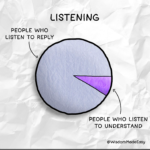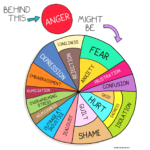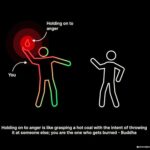Another evening… it’s just me and my guitar, fingers poised over the strings, trying to learn another classic U2 song. It’s turned into a ritual. Me, somehow stuck in a looping exercise of no progress, strumming away.
Frustration has visited me enough to make me feel at home—but I still keep at it.
Some days feel hopelessly futile. Some days, I am ever so slightly rewarded. Then, miraculously, on an evening looking no different from any other, everything just falls into place. The notes flow seamlessly. At last, victory!
Quite amazing actually, how yesterday’s challenges with the help of countless, meticulously labored-over nights can twist into today’s victories.
But you may be asking: What exactly does this have to do with therapy, Peter?
Think of therapy as learning to play a very difficult piece of music on the guitar. At first, it’s quite defeating. You feel you’re getting absolutely nowhere. You have sessions; they keep echoing the repetition of guitar practice, and it seems like you’re not getting anywhere.
However, every thought that is discussed, every feeling that is explored, even the smallest shift is monumental. It’s all part of the therapeutic journey. Progress might be so small or even imperceptible from one day to the next, but over time, those small steps really do compound into big change.
Suddenly, you feel better, think differently, and even do things that in the past seemed impossible. The change is not overnight but really gradual, and when you reflect on your journey, it becomes evident just how far you have come.
So what’s the big takeaway here?
Well, whether strumming a guitar or navigating through therapy, the principle remain the same: Push through, even when it’s hard to figure out, because the cumulative effects of daily effort promise remarkable results.
Continue to believe in your ability to get better.
You can – and you will.
Peter Zafirides, MD
Central Ohio Behavioral Medicine
PSYCHIATRY
COLUMBUS, OHIO
If you’re experiencing anxiety or depression do not take these symptoms lightly. The earlier you get help, the quicker you can find healing, because your symptoms truly can get better. Working with our psychiatrists is a proven path for dealing with such concerns. Contact us to talk about getting you the help you need and deserve.






